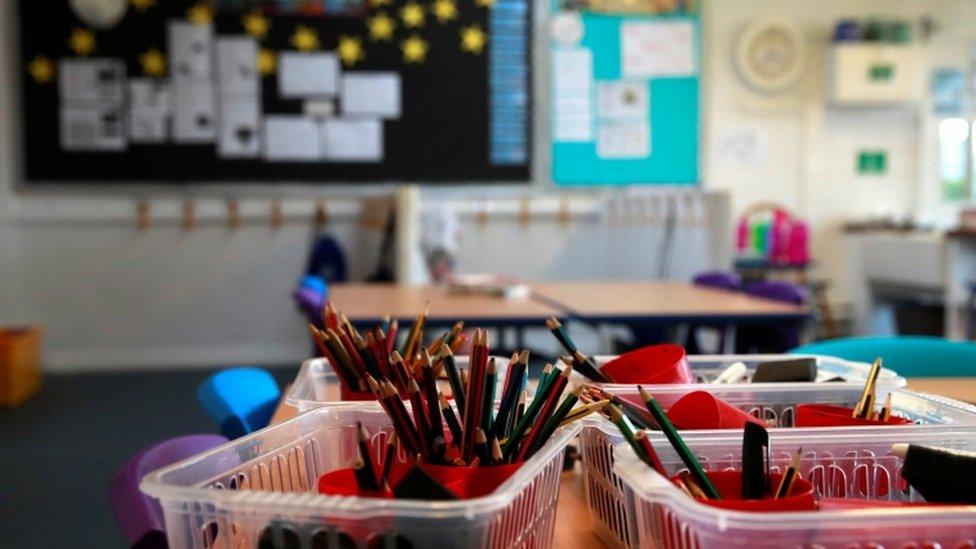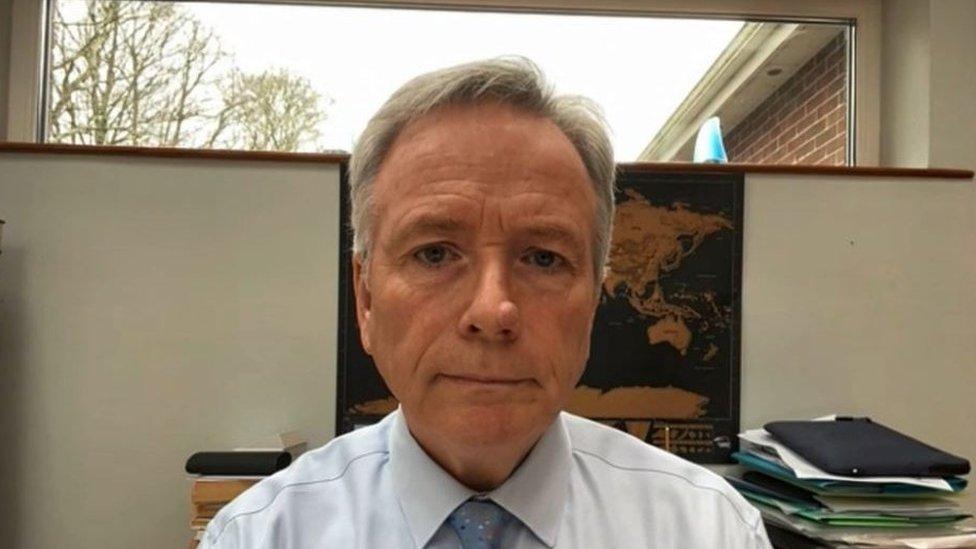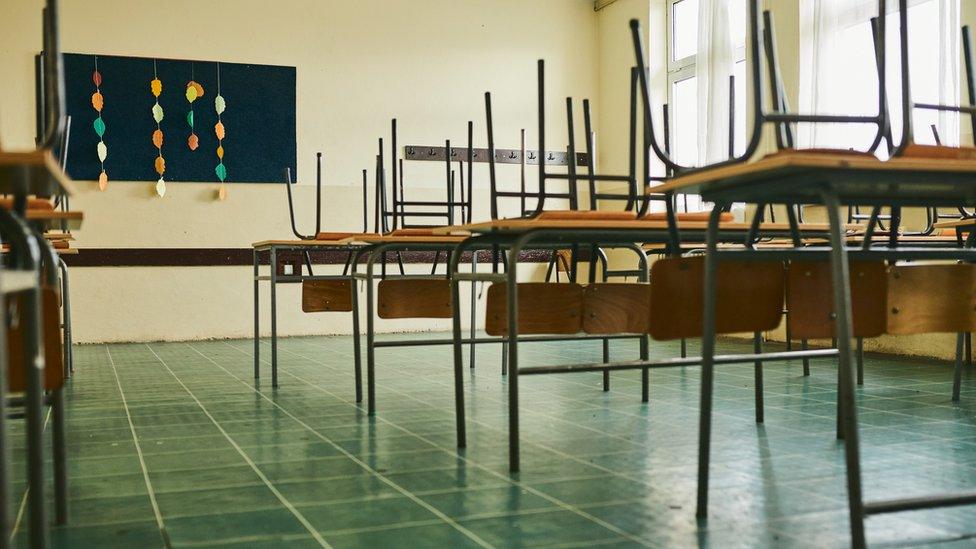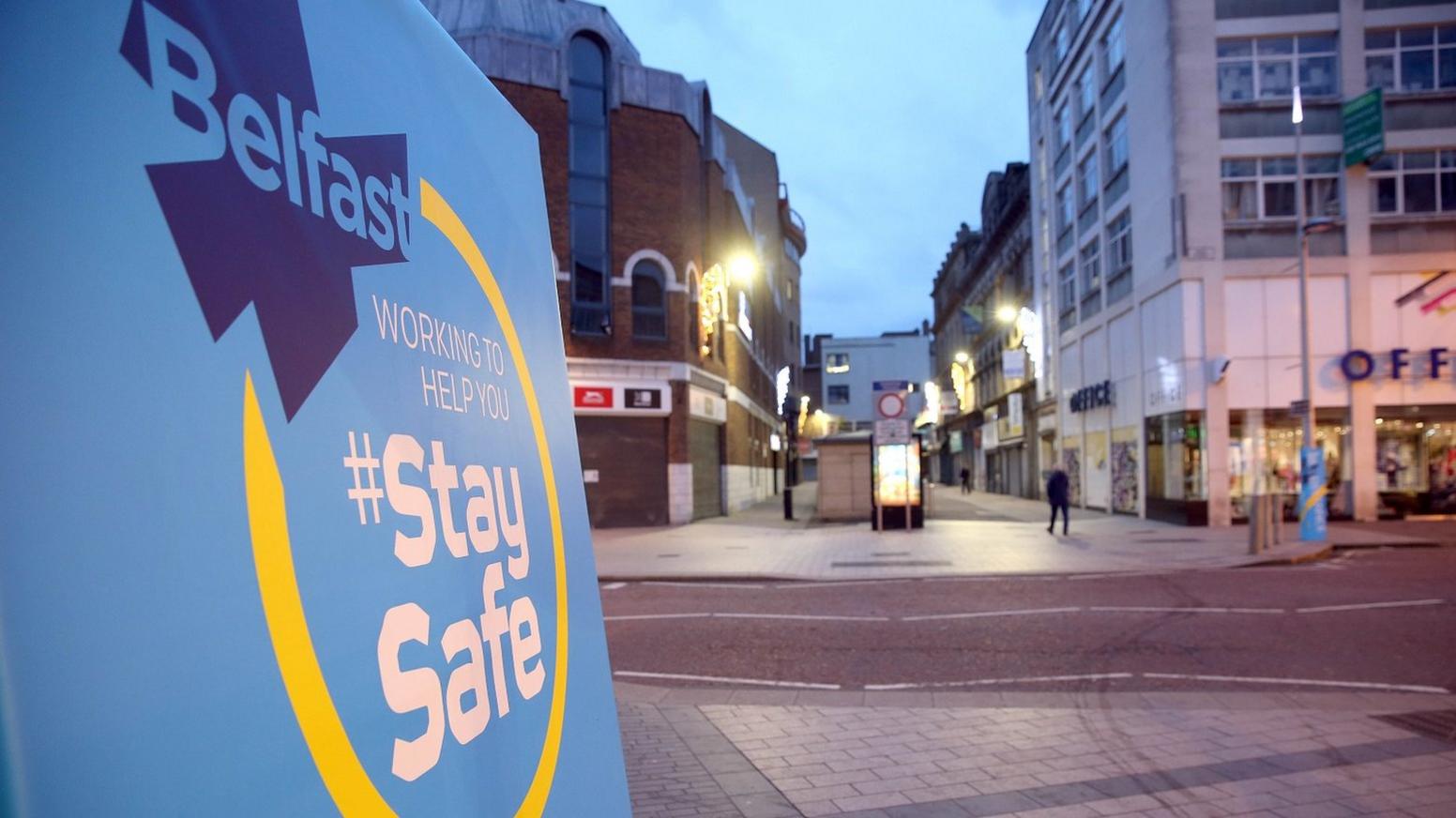Coronavirus: 'Big ask' for NI secondary schools to open on 8 March
- Published

Stormont announced in February that schools would be staying closed until 8 March at the earliest
It would be a "big ask" to reopen secondary schools in Northern Ireland on 8 March, a British Medical Association (BMA) leader has said.
But Dr Tom Black, the BMA's Northern Ireland chairman, said he was hopeful primary schools could reopen then.
The Stormont executive has agreed that schools in Northern Ireland will remain closed until 8 March at the earliest.
Last week a teaching union said a full return to school "may not be possible for some time".
Speaking on BBC News NI's Sunday Politics programme, Dr Black said the reopening of primary schools was more likely because "we know the transmission infection in younger children is much lower".
He said: "The chief medical officer and the Department of Health will look carefully at data and look at the R number - which is 0.8 at the moment.
"Opening schools has an increase of between 0.3 and 0.6 in the R number, so we couldn't do that at the moment.
"Maybe in March, primary schools to open and see what effect it has.
"We really want the schools open before anything else, but secondary schools might be a reach at the moment."

Dr Tom Black said nobody wanted to risk another lockdown
On Sunday, the Department of Health said 11 more people had died with Covid-19 in Northern Ireland and another 176 had tested positive for the virus.
Some 476 patients in Northern Ireland's hospitals have the virus - 58 of them are in intensive care units (ICU).
So far 391,101 people in Northern Ireland have had their first dose of the vaccine and 28,976 have had their second.
In the Republic of Ireland, 17 Covid-19-related deaths were confirmed on Sunday and another 788 people have tested positive.
There are 899 inpatients with coronavirus, 160 of whom are in ICU.
As of Thursday - the most recent figures available - 171,239 people in the Republic of Ireland had received their first dose of the vaccine and 89,834 people had received their second.
Stormont ministers will meet on Thursday to discuss whether to extend Northern Ireland's lockdown beyond 5 March or begin the process of lifting restrictions from then.
Dr Black added that everybody was "fatigued" and "fed up" with lockdown but that restrictions must be eased gradually to avoid a further spike in cases.
He said: "The last thing we need is a fourth wave, the last thing we need is to ease the lockdowns and bring them back.
"This hopefully will be our last lockdown so let's do it properly.
"It's small steps, it's increments - let's see what we can get away with, let's see what affects the R number, let's see what affects the transmission of infections.
"We are in a good place with vaccines but we are still in a bad place in terms of the number of infections and the number of patients in hospital."
Related topics
- Published28 January 2021

- Published14 February 2021
